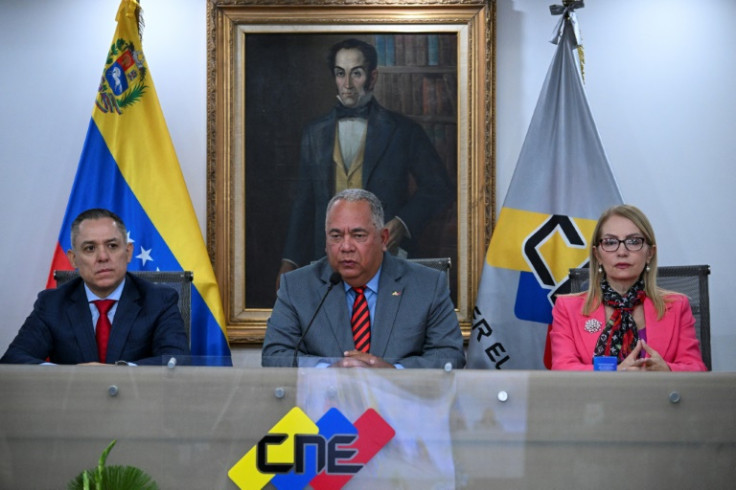Venezuela Will Hold Presidential Elections On July 28: Official

Venezuela will go to the polls on July 28 to choose a president, the electoral authority said Tuesday, with incumbent Nicolas Maduro widely expected to stand and his main challenger precluded from running.
Last year, Maduro's government and the opposition reached a mediated deal in Barbados to hold a free and fair vote in 2024 with international observers present.
The Barbados agreement saw the United States ease sanctions against the South American country, allowing US-based Chevron to resume limited oil extraction and leading the way to a prisoner swap.
The deal required that opposition candidates be allowed to appeal court rulings disqualifying them from hold office.
Since then, however, the Supreme Court loyal to Maduro upheld a 15-year ban on opposition primary winner Maria Corina Machado.
It ruled in January that Machado would remain disqualified "for being involved... in the corruption plot orchestrated" by former opposition leader Juan Guaido.
The court said Guaido's "plot" had led to a "criminal blockade of the Bolivarian Republic of Venezuela, as well as the shameless dispossession of the companies and wealth of the Venezuelan people abroad, with the complicity of corrupt governments."
The court also confirmed the ineligibility of a possible opposition stand-in -- two-time presidential candidate Henrique Capriles.
Machado, after the court decision, accused Maduro and his "criminal system" of seeking "fraudulent elections."
The ruling resulted in the United States announcing it would reimpose some sanctions.
A senior government official Diosdado Cabello has also since said the elections would be held "without the presence of the United States, without the presence of the OAS (the Organization of American States)," contrary to the Barbados deal.
Last month, Maduro said the "people in power" would surely win.
"We are the people in power... We will win one way or another," Maduro told thousands of supporters in the capital for a rally marking the 32nd anniversary of a failed coup led by Hugo Chavez, who later became president and designated Maduro as his successor.
Maduro has not confirmed he will seek a third six-year term, but is widely expected to do so.
The controversial leader said in January the Barbados agreement was "mortally wounded" after government authorities claimed to have foiled numerous US-backed plots to assassinate him.
After 2018 elections that saw Maduro inaugurated for a second successive term despite widespread fraud claims, the United States and most of the international community recognized Guaido -- now in exile -- as Venezuela's legitimate president.
But years of sanctions and other pressure failed to dislodge Maduro, who enjoys support from a political patronage system, the military and Cuba, Russia and China.
National Electoral Council (CNE) president Elvis Amoroso, also under US and European Union sanctions, said Tuesday the body had unanimously chosen July 28 from among 27 possible dates proposed by the government-aligned parliament.
Candidates will be able to register between March 21 and 25, and the electoral campaign will officially open on July 4.
© Copyright AFP 2024. All rights reserved.











